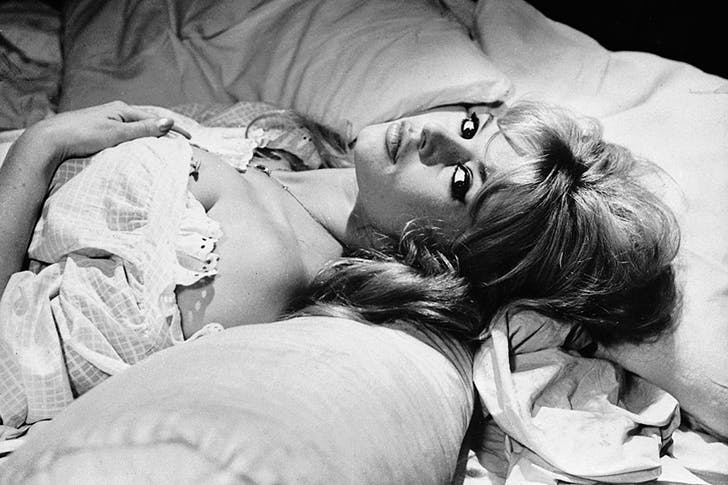I am very bad at remembering my dreams: I would have been a poor patient for Dr Freud. But I know that as a little boy most of my dreams were rather frightening, even if I can’t recall them in detail. An oft-repeated dream involved a monstrous apparition that would rush down from the sky into my bedroom and be about to attack me or gobble me up, when I would suddenly leap awake, much relieved that nothing unpleasant had happened. I can’t describe what the monster looked like, except that it was amorphous and not human. Occasionally the dressing-gown hanging from my door would suddenly transform itself into its hideous form and rush at me from across the bedroom. Then, too, I would wake up in time to save myself.
The other kind of dream I had as a child was of an opposite kind and would credit me with some great achievement. I would dream that I had written a verse of poetry unequalled in beauty and wisdom anywhere in literature, but would wake up without remembering any bit of it. On one occasion, however, I did recall something of the kind. I dreamt that I had written the most beautiful tune in all of music; but, unlike Sir Arthur Sullivan’s ‘The Lost Chord’, some of it remained in the mind even when I woke. The only problem was that it was a very feeble tune that I remembered, a tune that was similar to that of the national anthem, but not even as good as that. Waking up on these occasions was less a relief than a disappointment.
When I grew up, waking from dreams became even more disappointing, for they didn’t celebrate any imagined achievement but encouraged hopes that would then be cruelly dashed. I would tentatively dream that Brigitte Bardot was craving for my company, or that I was about to be offered the editorship of the Daily Mirror, although there wasn’t the slightest chance of either. I even dreamt I was a favourite candidate to become Bishop of Bath and Wells and live in his magnificent palace, but this, too, was just a pipe dream. It must have happened because my father had once recommended that I seek a career in the Church of England on the grounds that I would have better prospects of promotion there than in some more challenging field of endeavour.
The monster that had haunted me in my childhood had thankfully disappeared, but I did continue to have nightmares from time to time. They might involve car crashes or exploding aeroplanes or acts of terrorism involving the IRA. Or they might concern nothing more than social embarrassment, such as behaviour causing the displeasure of someone important like Rupert Murdoch, which might not really matter at all but would still feel devastating in my sleep. Fortunately, I put my foot in it much more often in dreams than in real life, in which the worst thing I once did was meddle with a television set at one of the late Lord Hartwell’s glamorous general election parties, thereby silencing all the tellies in his Westminster house as his distinguished guests started watching the first results come in.
Now that I’m old, I still dream quite a lot; but my dreams now tend to reflect the fears that trouble most old people in real life. I dream that I have forgotten to feed the chickens or the dog, which will be starving as a result. I dream I have lost my hearing aids, on which I have just spent a large fortune, and can no longer understand the radio or take part in conversations. I dream I have mislaid my spectacles, and consequently find it impossible to write the column that The Spectator is waiting for.
Old age is fertile terrain for unsettling dreams. To dream of dying is one of the more disconcerting experiences, for you can’t be sure that you haven’t really died until you have pinched yourself a number of times after waking up: you might just have been experiencing the afterlife. But death apart, most of the things I dream about have an unfortunate way of actually happening. I have lost both my hearing aids and spectacles on several occasions, sometimes irremediably, and I have yet to dream of finding them again. It is in one’s final years that dreams and reality can seem to merge.
Got something to add? Join the discussion and comment below.
Get 10 issues for just $10
Subscribe to The Spectator Australia today for the next 10 magazine issues, plus full online access, for just $10.















Comments
Don't miss out
Join the conversation with other Spectator Australia readers. Subscribe to leave a comment.
SUBSCRIBEAlready a subscriber? Log in